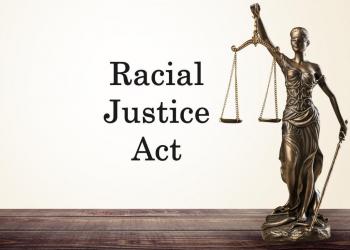
Beware Explicit and Implicit Bias: The California Racial Justice Act Has No Tolerance for Racism
California’s Racial Justice Act, as contained in Penal Code §745, prohibits investigative practices as well as the use of evidence or trial tactics exhibiting explicit and implicit racial biases in a criminal investigation or criminal trial.
Defendant Akeem Simmons, in Philadelphia, and nightclub disc jockey Danny Graves, in Los Angeles, were friends. Graves was also Simmons’ supplier of marijuana in late 2017 to early 2018. Simmons is a Black man who was a barber in Philadelphia, selling marijuana on the side to supplement his income. He frequently traveled to Los Angeles to socialize with Graves, and to buy drugs. When in L.A., Simmons and Graves would hook up with friends, meeting and dating women.
Simmons gave Graves $10,000 on one such visit for the purchase of marijuana. Graves passed this money onto his supplier who failed to deliver, interrupting the supply chain. Although Graves was eventually able to secure 22 pounds of marijuana for Simmons, this didn’t cover the amount of money that had been lost. Simmons was not happy. In March and May of 2018, Simmons unsuccessfully tried to kill Graves, shooting at him but missing the first time, and gravely wounding him the second time. Charged in state court with two counts of attempted murder and related charges, Simmons was convicted of the first attempt but acquitted of the second despite Graves having identified defendant as the shooter in both, and with the same gun used in both. Simmons testified in his own defense at trial, denying being the shooter in either instance.
During the trial, in what the appellate court described as a “lengthy and disjointed cross-examination,” the prosecutor made a big thing out of Simmons’ relationships with women, getting him to acknowledge that he “always (tries) to be charming.” The prosecutor also commented several times that Simmons is a “light-skinned” Black man, asking him to compare his skin tone to that of other people he mentioned in his testimony. Presumably, this was for the purpose of supporting identification evidence of him as the shooter in both cases.
Simmons did not deny that he could easily be mistaken as Caucasian or Hispanic, and that “yes,” the women did in fact love him. During the prosecutor’s closing and rebuttal arguments, she made repeated references to Simmons’ race, his good looks, his “charming” nature, and the fact that he was so light-skinned that he could have been mistaken for a White or Hispanic man.
Convicted of the March attempted murder, Simmons’ sentencing was delayed due to COVID until January 4, 2021. This happened to be three days after the effective date of the California Legislature-enacted Racial Justice Act, Penal Code §745. At sentencing, neither party mentioned this new legislation. Sentenced to life in prison plus a 20-year enhancement for the firearm use, and a concurrent term of 27 months for attempting to evade police when originally arrested, Simmons appealed.





